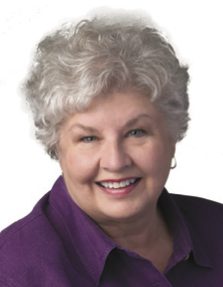
23 Feb 2014 'The well-seasoned woman'
by Vivian Lawson Hogue
Before the workplace became commonplace for women, there was generally the presence of the mother in the home. She was often assisted with her household duties and child-raising by a live-in grandmother or aunt. As more women sought careers away from the hearth in the 1960s, the place of that help would eventually be assumed by child care centers. The grandmother or aunt would live alone, and everyone was a loser in the process.
There was less contact with the children who missed learning about earlier times of subsistence living. With that came the lack of knowledge or interest in family stories, genealogy, history or customs. Even the grandmother’s name changed, and the more quaint and familial “Grandmother,” “Granny’ or “Grandma” often became replaced by coined variations such as “Neenaw,” “Noni” or “Geegaw.”
Today’s grandmothers can be surprisingly young. Great-grandmothers are often in their 80s or 90s, and many are surprisingly agile and informed. Some drive vehicles, although not fast enough for commuters, teenagers and those “on the go” as they know their reflexive shortcomings and they tend to obey the laws. They like to shop mid-mornings when traffic and parking should be lighter. Some carry credit cards; many still carry a checkbook.
If they are fortunate to still have their husbands, they may be seen dancing with them or holding hands, behavior that could be enviable to those more youthful citizens. They like dining out, but prefer to save their money for more necessary or lasting expenses. They tend to be frugal, but have experienced historically hard times and know how to cut back without whining. Some have their concealed carry weapon permit.
Some younger citizens become impatient with them, but they must remember these behaviors are not character flaws. They are simply the conduct of brave survivors of past and current perilous times and changing health. Our senior women are valuable resources for their eras who yearn to talk about them with someone near their age or who is seeking knowledge. Some listeners do not, and often will not, believe their life experiences because they can’t imagine not having the comforts of the easy life. How could anyone live without technology and travel? Without fast foods and fast cars?
I recall a family story in which my mother arrived home to find my oldest brother, then 16, giving a ride to our 68-year-old grandmother on the handlebars of his bicycle. She was ready for a new experience, and the young’un was only glad to comply.
At the age of 82, our mother was told by my brothers that she could not drive anymore. After she passed away nine years later, a good friend said my mother confided in her that soon after the “edict,” she once defiantly sneaked a drive around the block. She never drove again, but had proven to herself that for 10 minutes, she was still in control.
We all know “well-seasoned” women such as these. We are lucky to have them, for they are reminders to the younger ladies that one day they, too, will wear eyeglasses on chains and drive while their husbands ride. And so it will go, if they are so blessed.
A native of Conway, Vivian Lawson Hogue graduated from the University of Central Arkansas with a degree in art education. A retired teacher, she worked in the Conway School District for 23 years. She is editor of the Faulkner County Historical Society’s semi-annual publication, “Faulkner Facts and Fiddlings.” She can be reached at vhogue@conwaycorp.net.












